IoT software development company
We are one of the leading IoT software development companies. We provide cutting-edge custom IoT development services, delivering highly-efficient and scalable software to our clients. With a team of experienced developers, designers and BA experts, Innowise helps companies to stay ahead of the competition by leveraging the latest advancements in IoT technology.
Take your business to the next level of intelligence with our cutting-edge solutions
Internet of things development services
our experts can handle any level of complexity and provide custom solutions, whether starting from scratch or contributing to an ongoing project. Our internet of things development services cover several major areas, including custom software development, platform integration, and technical consulting.

Custom IoT software development
We create tailored-made IoT solutions for specific projects of our clients. With years of IoT experience, Innowise’s in-house professionals can cope with projects of any complexity and in any industry.

IoT analytics
We are skilled specialists build smart tools to gather and structure large amounts of data from various digital devices and produce actionable insights to make informed decisions
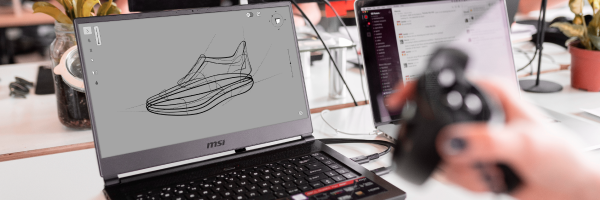
Embedded IoT software development
Our vetted software engineers take full advantage of embedded devices, ensuring connectivity via the cloud and internet through various communication channels to process information in real time.

IoT web app development
Our specialists create web applications that rely on technology connecting remote and geographically dispersed devices, such as sensors, and allow users to manage these devices directly from their web browser.
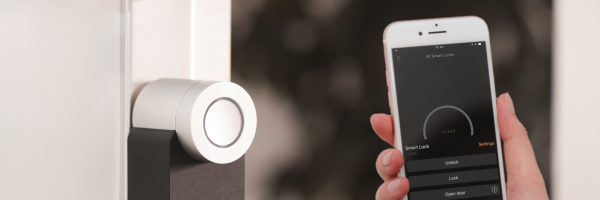
IoT mobile app development
We offer mobile solutions that enable direct interaction with physical objects in connected networks. Our goal is to help clients transform their mobile devices into versatile remote controls that can manage multiple interconnected systems.
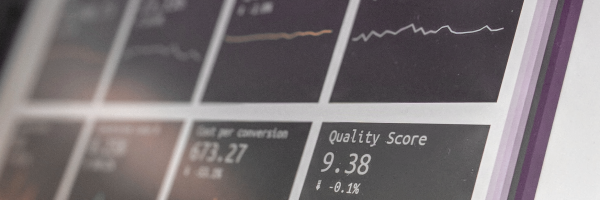
IoT dashboards development
We build various dashboards to help solve specific industrial issues (such as lack of centralized sensor management) and improve automation. Such dashboards are commonly created for niche professionals.
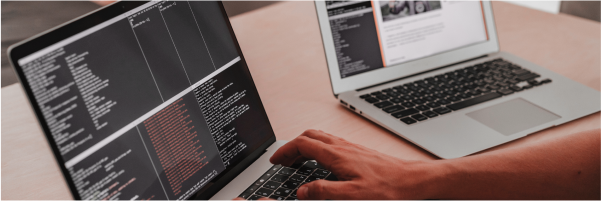
IoT firmware development
Using advanced firmware development techniques, our developers ensure efficient operations, set up drivers, and maintain secure connectivity and communication between devices and the cloud.
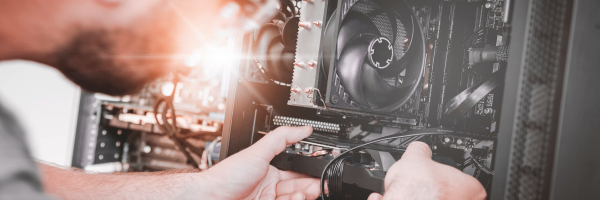
IoT hardware solutions
Our experts have extensive experience with both software and hardware. For example, our specialists work directly with sensors and get involved in microcontroller programming.
Our IoT software development expertise
ADFAR Techx has a proven track record of driving innovation for businesses. Our experts provide consultation on all aspects of the internet of things for companies with physical interaction with sensors or devices and offer advanced automation solutions. Explore the industries where our professionals have leveraged their expertise, knowledge, and skills to bring the latest advancements to life.
IoT and big data
IoT and machine learning
IoT and blockchain
The internet of things enables connected devices to send data to the blockchain to create non-rewritable and tamper-resistant records. Thus, Innowise uses these technologies together to ensure safe machine-to-machine transactions.
IoT and metaverse
IoT and cybersecurity
We ensure that the interconnected devices system is protected from digital threats. We configure powerful security software that guards firmware, hardware, networks, and applications from digital scamming.
IoT and data visualization
To gain a deeper understanding of information, our experts provide techniques that turn raw data from various data streams into insightful visualizations, serving as templates to make informed decisions.
IoT use cases for industries
By collecting data through sensors and other devices, our solutions provide valuable insights and real-time information that can be used to make informed decisions. These data-driven decisions can lead to more efficient operations, reduced costs, and improved asset management. Furthermore, our solutions help businesses keep pace with industry developments and stay ahead of the competition. With our expertise in the internet of things and data analytics, we help organizations across various industries transform their operations and gain a competitive advantage.
IoT software for logistics and transportation
The internet of things can be used for remote vehicle monitoring, fleet management and maintenance, GPS tracking, route building, streamlining transportation processes, and optimizing delivery expenses.
Industrial IoT for smart manufacturing
IoT software for device management
To streamline business operations at enterprises, we implement centralized connected device solutions with a unified control panel that serves as a central hub for configuring and managing all devices and equipment connected to a particular solution.
IoT software for smart cities and homes
IoT software for retail and eCommerce
Connected devices in retail can enhance the customer experience by providing real-time insights into the target audience’s needs. We empower companies to swiftly respond to demand by incorporating data analytics.
IoT software for leasing and maintenance
This service involves developing connected device solutions for commercial use by other businesses (through leasing). Specifically, we develop custom solutions our clients can reuse for their business operations.
IoT software for healthcare
IoT for food industry and HoReCa
Our team of professionals is well-equipped to help you stay at the forefront of modern technological advances in the internet of things food industry. Our bespoke solutions enhance productivity, improve customer service, and reduce client costs.
Agricultural IoT solutions
IoT education software
IoT automotive solutions
Smart cars are made safer through connected automotive technology, which monitors critical vehicle parameters such as fuel consumption and engine temperature to detect potential problems early.
IoT in banking
Benefits of custom IoT solutions
Custom software can bring many benefits to businesses, including increased efficiency, real-time data tracking, better decision-making, reduced operating costs, improved asset management, and increased competitiveness. These solutions can be tailored to a business’s specific needs and requirements, providing a more personalized and effective solution than off-the-shelf options. Integrating the internet of things and automation can lead to increased productivity and improved customer satisfaction, making custom software a valuable investment for any business looking to stay ahead in today’s technology-driven world.
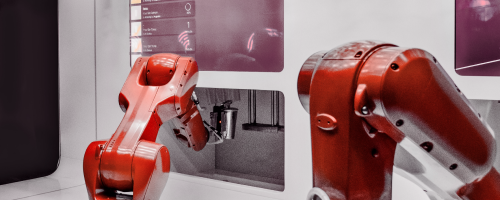
Improved staff productivity
Due to automation, connected devices can replace humans in performing repetitive mundane tasks while employees can concentrate on more complex, sophisticated duties that require out-of-the-box thinking.

Efficient production management
Enterprises of all sizes can benefit from more precise and timely operational processes, including resource planning, inventory management, warehouse administration, and shipping tracking.
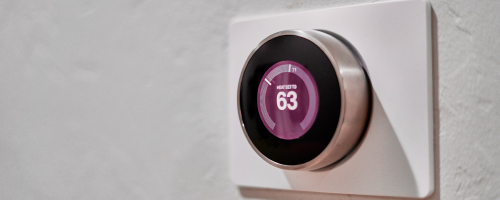
Resources and assets saving
With the internet of things, interconnected sensors track resource use and monitor energy over-expenditure, resulting in improved power management, water consumption, and reduced electric and water bills.

Cost-effectiveness
The internet of things allows for automatic scheduling and planning, facilitating higher production rates, reducing downtime periods, and bringing bigger profits. This results in improved management across your business.
Our AI development tech stack
Cloud IoT:
- AWS: IoT Core, IoT SiteWise, IoT Analytics, IoT Events, IoT FleetWise
- Azure: IoT Hub, IoT Edge, IoT Central
- GCP: IoT Core
Databases:
- Cassandra, Clickhouse, MongoDB, PostgreSQL, MySQL, MSSQL, MariaDB, InfluxDB
- AWS: Timestream, Redshift, DynamoDB, S3, RDS, Aurora, DocumentDB
- Azure: Synapse, Cosmos DB, Data Lake, Blob Storage
- GCP: Bigtable, Bigquery, Cloud Storage
Data streaming:
- Kafka, RabbitMQ
- AWS: Kinesis, MSK, SQS
- Azure: Stream Analytics, Event Bus
- GCP: Dataflow, Datastream
Data visualization:
- Grafana,
- Kibana,
- Tableu,
- Plotly,
- Power BI,
- Excel,
- AWS Athena,
- AWS Quicksight
Data processing:
- Spark, Hadoop, Airflow
- AWS: Glue, EMR, Step Functions, Lambda
- Azure: HDInsight, Functions
- GCP: Cloud Functions
IoT devices we work with
While working on diverse projects, Our experts divide IoT devices into several categories based on their design, complexity, and purpose.
Wearable IoT devices
Our developers build user-friendly apps that collect and analyze data from motion sensors, fire/CO safety sensors, lighting, thermostats, etc.
Smart home devices
Our developers build user-friendly apps that collect and analyze data from motion sensors, fire/CO safety sensors, lighting, thermostats, etc.
Industrial sensors
Our team has created multiple IIoT solutions for a range of industrial sensors, including level sensors, humidity sensors, temperature sensors, etc.
Industrial robots
We develop custom software for equipment used in manufacturing. They are automated, programmable, and capable of movement on several axes.
Healthcare devices
We proudly contributed to building helpful healthcare devices which record vital signs (e.g., heart rate monitors, glucose trackers, etc.).
Connected cars
We take part in developing solutions such as fleet management software based on car trackers, smart cars able to lock doors when burglarized, etc.
Smart factory systems
Our skilled developers forge smart factory systems that consist of interconnected machines and computing power to analyze data and engine automated processes.
Smart city devices
We deliver connected device-based solutions that help utilities manage interconnected sensors, lights, and other elements to enhance city residents’ comfort.
Connected products
We develops solutions that can transmit and share information about their ecosystems, users, and statuses via the internet.
Cost of internet of things development
A connected device solution’s cost depends on several factors, including project complexity. A rough estimate of IoT app development cost can be obtained by taking into account the number of hours spent and the size of the development team. However, the final cost is subject to multiple other factors that must be considered.
Process complexity
Scope of automation
Expertise required
Customization requirements
Integration with existing systems
Ongoing support and maintenance
Looking for experienced developers to take your business to the next level?
ADFAR Techx is the host to many IT talents
Hire the best IoT development team
We our help our clients streamline recruitment processes and find and hire the best developers in just 1-3 days. Our 10+ years of experience in creating IoT software means our clients will receive a team of seasoned professionals who can handle the technical aspects while they focus on their project goals. We deliver high-quality, reliable, and timely internet of things application development services. All of our solutions undergo thorough audits to ensure error-free deployment. And even after deployment, our clients can continue to receive full support from our team.
Our IoT development process
ADFAR Techx, is a leading IoT development company where we have a well-adjusted step-by-step IoT development process. Each of the steps we take helps us ensure full transparency, high efficiency, and overall success of the collaboration with clients.
FAQ
It refers to a network of physical devices, vehicles, home appliances, and other items embedded with electronics, software, sensors, and connectivity which enables these objects to connect and exchange data. This creates opportunities for more direct integration of the physical world into computer-based systems, resulting in efficiency improvements, economic benefits, and reduced human intervention. In essence, it refers to the concept of connecting everyday objects to the internet to collect and exchange data.
It usually takes one to two weeks to complete the internet of things app development team. However, if your project requires a highly specialized IoT developer, the specified time range may be somewhat larger. As for hiring dedicated 1-2 experts per team, this procedure usually takes only a couple of days.
Examples of connected devices that collect and exchange data without human intervention include smart home appliances, wearable devices, and sensors in various industries such as healthcare and transportation.
As a rule, internet of things technology companies provide you with an accurate answer to this question during a personal conversation. Note that the duration of the project implementation depends on many factors, ranging from the project’s complexity to the development team’s size. In terms of building solutions from scratch, the internet of things software development takes about a year. The implementation of projects can, however, be accelerated in some cases (such as when the client doesn’t require custom IoT development services but uses an off-the-shelf IoT solution).
There are many ways that interconnected devices and technology can improve your business operations and drive success. Some benefits include increased efficiency and automation, improved data collection and analysis, enhanced customer experience, and reduced operational costs, among others. In general, if there’s a chance to facilitate device interaction without human involvement, your business will greatly benefit from utilizing IoT app development services.
Device management refers to the process of overseeing and controlling the performance and functionality of connected devices on a network. This includes tasks such as monitoring device usage, updating software and firmware, configuring security settings, and resolving technical issues. Effective device management is crucial for maintaining the proper functioning and longevity of these connected devices.
Securing connected devices involves implementing various measures to protect them against unauthorized access, hacking, and other security threats. This may include implementing strong passwords, regularly updating software and firmware, using encryption for data transmission, and configuring firewalls. Other security measures may include disabling unnecessary services, limiting network exposure, and regularly backing up data. Additionally, it is important to stay informed about the latest security threats and to take proactive measures to address them.
